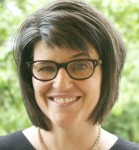To the list of reasons why the 2016 presidential contest in the United States has been especially notable and newsworthy, we might add the number of superlatives surrounding it. Headlines refer to the two leading contenders—Hillary Rodham Clinton and Donald J. Trump—as the “least trusted” and “most unfavorable candidates ever.” Despite the unpopularity of the candidates, the 2016 election itself has been described as “the most important of our lives” and indeed “ever“—or at least “since 1932.” (For more on this particular claim, see also this and this.) It is predicted that 2016 will be the “most expensive election” in history. Although historians suggest that it might not, in fact, be the longest and bitterest campaign in the U.S., clinical psychologists reported seeing unprecedented levels of “stress and anxiety” associated with this election in their clients. In sum, the 2016 presidential contest is already being characterized as theworst election, ever. Or, if you are on Twitter, it is the #WorstElectionEver.
The discontent, frustration, anger, and worry—and also the hope, optimism, and resolve—on display in the 2016 election are not unique to it or to the electoral politics of the U.S. Indeed, in all of the places where anthropologists pursue their studies, they have been bearing witness to citizens and voters expressing their concerns and criticisms about the qualities of their elected leaders, the legitimacy of the processes that bring parties into power, the responsibilities and rights of the electorate itself in addition to broader and deeper questions about the nature of democracy—or of democracies.
Jason Antrosio, Department of Anthropology, Hartwick College
In other news:
This is the sixth post in our blog series designed to help you link your teaching with the 2016 Annual Meeting theme, Evidence, Accident, Discovery. The series offers relevant teaching resources to instructors of undergraduate and graduate courses on methods, ethics and theory. Think of it as a week’s course readings in a (virtual) box…
This week’s post comes from Jennifer E. Telesca at the Pratt Institute.
“The Authority of Number: On Evidence in Statecraft”
Savage Minds welcomes guest blogger Angelique Haugerud.
“America is a shining example of how to hold a free and fair election, right?” asksBassem Youssef, a comedian and former heart surgeon who is often referred to as “the Egyptian Jon Stewart.” Astute answers to that question about the condition of U.S. democracy often come from foreigners such as satirists, as well as my East African research interlocutors.
Land rights are key in Colombia

USFSP Anthropology Professor Goes International
The Crow’s Nest
World Traveler: Dr. Kathy Arthur is an anthropology professor on campus. In 2012, Arthur and her husband discovered the first African genome in Ethiopia, one of Arthur’s most notable finds. This year she gave lectures in Japan for the World .
The Society for the Anthropology of Food and Nutrition (SAFN) and Culture&Agriculture (C&A) are excited to announce that we will jointly sponsor two workshops led by Dr. Karen Kelsky from “The Professor Is In”. These workshops will provide fora to consider career development strategies along with peers who share interests in matters food/agriculture/ natural resource-related. They will take place on Friday, November 17th at the AAA Annual Meetings in Minneapolis, MN. We thank the AAA for a Mentoring Award in support of these events. We will also hold a Mentoring event between the workshops (at noon) for registered participants and interested members of C&A and SAFN.
Discover more from Erkan's Field Diary
Subscribe to get the latest posts sent to your email.
